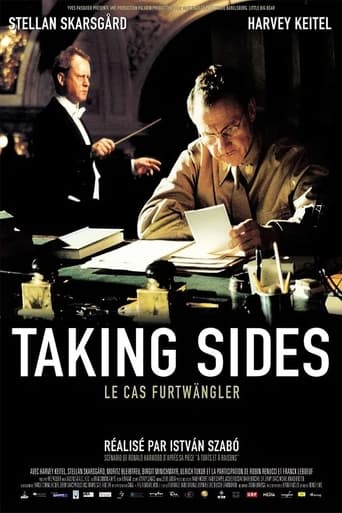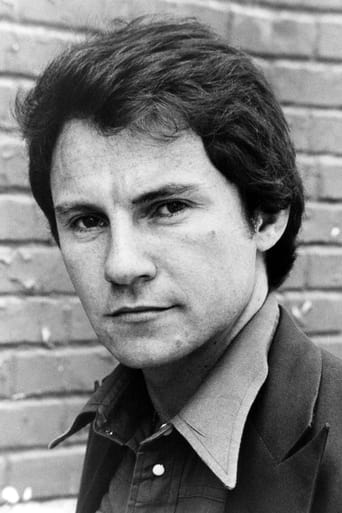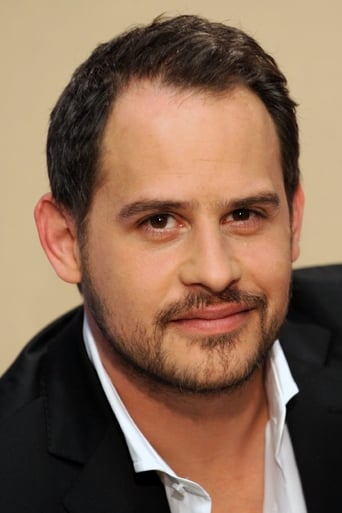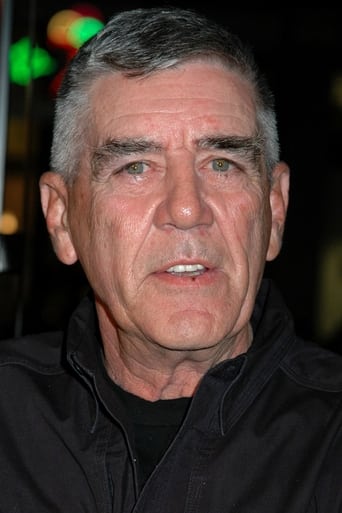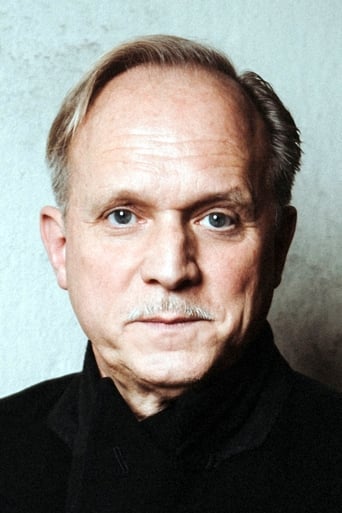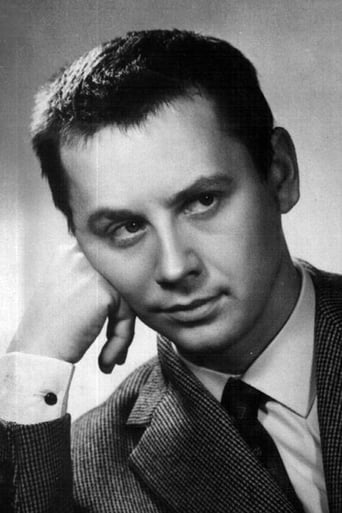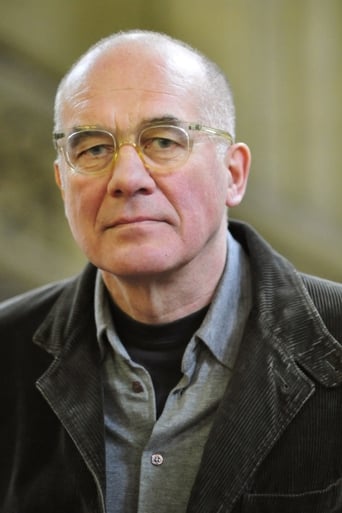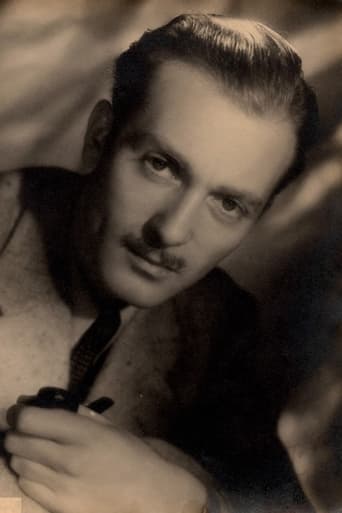One of the most spectacular and renowned conductors of the 1930s, Wilhelm Furtwangler's reputation rivaled that of Toscanini's. After the war, he was investigated as part of the Allies' de-Nazification programme. In the bombed-out Berlin of the immediate post-war period, the Allies slowly bring law and order to bear on an occupied Germany. An American major is given the Furtwangler file, and is told to find everything he can and to prosecute the man ruthlessly. Tough and hard-nosed, Major Steve Arnold sets out to investigate a world of which he knows nothing.
You May Also Like
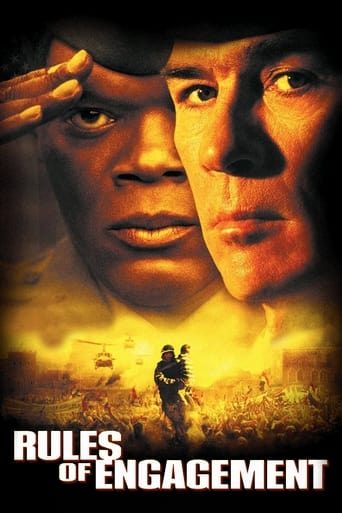
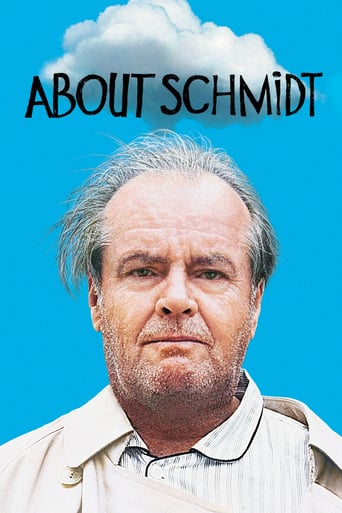




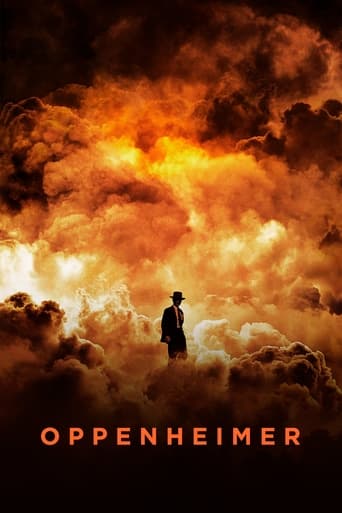



Reviews
Absolutely Fantastic
The acting is good, and the firecracker script has some excellent ideas.
I didn’t really have many expectations going into the movie (good or bad), but I actually really enjoyed it. I really liked the characters and the banter between them.
A clunky actioner with a handful of cool moments.
Bombs can be heard in the distance as Beethoven's Fifth Symphony is being performed in a church in Berlin near the end of World War II. The conductor, Wilhelm Furtwangler, portrayed by Stellan Skarsgard, continues the performance despite the wailing of air raid sirens and a spotlight scanning the windows. It is only a power failure and a darkened hall that ends the concert. Back in his room, the conductor is warned by Hitler's architect, Albert Speer, that it might be better if he take a trip out of the country and "get some rest." This scene opens the film Taking Sides, a fictional account of the investigation by Allied officials at the end of the war to find and punish Nazi collaborators as part of its "De-Nazification" program. No musician could work professionally until they had been cleared by the Allies and Dr. Furtwangler, who had remained in Germany during the war, was no exception. Directed by Istvan Szabo and based on a play by Ronald Harwood who also wrote the screenplay, the pre-trial investigation focuses on the role of the artist in a totalitarian society, specifically, whether it is more effective to leave the country in protest or remain to work against the oppressive government from within.The film relies heavily on three interrogation session conducted in an office above a museum between an overbearing investigator, U.S. Major Steve Arnold (Harvey Keitel), and a proud but humbled Furtwangler, perhaps the greatest conductor of his time and the last, great exponent of the German Romantic school. Under orders from his superior, a U.S. general (R. Lee Ermey), to "nail the bandleader" and hold all Germans responsible for their war crimes, Arnold keeps Furtwangler waiting outside his office, contemptuously calls him "Wilhelm" and talks to him as if he was personally responsible for the gassing of millions of Jews.Arnold's aides, Lt David Wills (Moritz Bleibtreu), a repatriated German Jew, and Emmi Straube (Birgit Minichmayr), the daughter of an officer who was executed for his involvement in the plot to kill Hitler, support the investigation but eventually express their distaste for Arnold's methods and try to bring a sense of compassion to the proceedings. Though the film engages in spurious speculations such as whether or not Furtwangler's secretary procured women for his pleasure before each concert and whether damaging evidence lurks in a "Hinkel archive," the real thorn of contention is that the conductor remained in Germany during the war while other famous conductors such as Otto Klemperer, Arturo Toscanini, Fritz Busch, Bruno Walter, and Erich Kleiber left. Some were Jews who had no choice. Others left out of conscience.As the prosecution shows newsreel clips of victims of the holocaust being thrown into mass graves, Furtwangler, a deeply conflicted man, becomes more and more on the defensive. When he is brutally questioned by Arnold about the high posts he accepted in the government, the concert he gave to celebrate Hitler's birthday, and the fact that his recording of the Adagio from the Bruckner Seventh was broadcast to the nation after Hitler's suicide, Furtwangler says that no one who was not in his shoes could appreciate "the tightrope he walked between exile and the gallows." He asserts that he was only a pawn in the power struggle between Goebbels and Goring, and that his continued presence in Germany was desperately needed to keep the spirit of resistance alive and nourish the soul of the German people in the midst of barbarism.In support of their conductor, musicians from the Berlin Philharmonic testify that Furtwangler was a man of high ideals who disdained politics, refused to join the Nazi Party, give the Nazi salute, or conduct concerts in Nazi-occupied countries, and helped countless Jewish musicians in need of money, employment, or an exit visa out of Germany. Though strong points are made on both sides, Szabo stacks the deck in one direction by portraying the major as a bullying and cynical Philistine in contrast to the intelligent and highly articulate artist (not the case in real life). By the time of the final session, Arnold has descended into little more than a self-righteous bully.The film ends with a postscript. It is Berlin, 1942, a different world than any of us know. The conductor is the real Wilhelm Furtwangler, a tall, gaunt looking man with only a patch of hair on his balding head standing astride the podium, a baton in his hand. In the audience are Nazis Heinrich Himmler, the chief of the SS, and Joseph Goebbels, the Nazi propaganda minister. Conducting a performance of Beethoven's Ninth Symphony, a work of titanic spiritual struggle, Furtwangler does everything to guide the orchestra towards the realization of Beethoven's humanity. The musicians, however, as if possessed, unleash every ounce of the work's inner fury with reckless abandon.A long scream echoes through the hall, Alle Menschen werden Bruder, Wo dein sanfter Flugel weilt! (All the people will be brothers, dwelling under your gentle wing). In this setting, the words could not be more steeped in irony. It is an ode to joy but there is no joy, only a cry of pain reflecting the outrage, the hopelessness of the moment. It is the tormented expression of an orchestra and its conductor saying farewell to a country and a promise they can no longer believe in. Though Furtwangler was eventually exonerated, exhausted and overwhelmed by the weight of memory, unable to protect his reputation in spite of support from many Jewish artists such as Yehudi Menuhin, the greatness that rightfully belonged to him would forever remain elusive.
Major Steve Arnold tells his assistant in one of the bar room scenes to "Grow Up - F----n Grow up", the time has long since passed for equivocation on the Furtwenglers of this world. Notwithstanding the merits or demerits of the film in cinematic terms, these I believe are the most telling words of the entire debate. What if all the singer songwriters who opposed the Vietnam war had wrung their hands in anguish wondering what the right thing to do was? When all the while the draft lottery was proceeding apace. When the noble conductor was wiping his hands at the end perhaps he was trying to wipe away his guilty conscience. There is a time when black and white logic, clear thinking and action are necessary, not the murky greyness of moral duplicity. As Nero fiddled, Rome burned. As Furtwengler conducted - the people in the gas chambers were squealing to accompaniment of the violins in Berlin!
In 1946, Wilhelm Furtwängler, one of Germany's greatest musicians and the conductor of the Berlin Philharmonic, was put on trial before a denazification tribunal, even though he was a member of neither the German government nor the Wehrmacht. He was not accused of war crimes; indeed, he was not accused of any crimes in the normal meaning of the term. He was never a member of the Nazi Party, made little secret of his dislike for them and always refused to give the Nazi salute. He assisted several Jewish musicians to leave the country. The Allied authorities, however, were well aware of the symbolic importance of culture, especially music, in German life, and were determined to land a "big fish". Furtwängler was charged with supporting Nazism by remaining in Germany, performing at Nazi party functions and with making anti-Semitic remarks.Furtwängler was eventually cleared of all these charges and allowed to resume his musical career, but even so he still remained suspect in many people's eyes. He was not, for example, allowed to conduct in America after the war. To me this has always seemed unfair given that there were other eminent musicians who were enthusiastic Nazis, such as his younger rival Herbert von Karajan, who actually joined the Nazi Party in his native Austria in 1933, at a time when that party was looked on with extreme disfavour by the country's authoritarian but anti-Nazi government. Even Arturo Toscanini, hailed as an anti-Fascist hero after he left Italy in 1931, was himself once a Fascist who in 1919 stood (unsuccessfully) as one of the party's parliamentary candidates.Istvan Szabo also directed "Mephisto", another film about an artist (in that case an actor) who compromises with the Nazis in order to continue working in Germany. The theme may have some personal relevance for Szabo himself, as he worked in Hungary under the Communist regime. "Taking Sides", based upon Ronald Harwood's stage play, imagines Furtwängler's pre-trial interrogation by Major Steve Arnold, an American officer. Most of the film takes place in Arnold's office, an appropriately claustrophobic setting which perhaps betrays its origins in the theatre, although we also see shots of the ruins of Berlin outside. There is one very effective scene of a classical concert taking place in a ruined church.Arnold is in many ways unsuitable for the task to which he has been assigned. He is a philistine, ignorant of classical music. He refers to Furtwängler as a "bandleader" and, when asked which is his favourite Beethoven symphony, replies "the eleventh". Upon being told that Beethoven only wrote nine he claims (unconvincingly) to have been joking. In civilian life he was an insurance investigator, and he has some similarities to the cynical character played by Edward G Robinson in "Double Indemnity", who automatically suspects all insurance claims of being fraudulent. (That film is briefly mentioned here). Arnold takes a strong dislike to Furtwängler, whom he suspects of being a fraud and a hypocrite, and bullies him mercilessly.Furtwängler, however, does have three surprising allies, all of whom have perhaps more cause to hate the Nazis than Arnold does, Arnold's Russian counterpart Colonel Dymshitz, his young assistant Corporal David Wills (ne Weill), a German Jew forced to flee to the US from the Nazis, and his German secretary Emmi whose father was executed for his part in the plot to overthrow Hitler. Dymshitz, unlike Arnold, is a music lover; although he has seen his homeland devastated by the Nazi invasion, he has lived under Stalin and therefore understands the compromises that need to be made with a totalitarian regime. Wills and Emmi take objection to Arnold's bullying of Furtwängler, which remind them of Gestapo interrogation tactics.There are two excellent performances in the leading roles. Stellan Skarsgard's Furtwängler is a saddened, disillusioned man, who has realised too late the evil of which his political masters were capable. Yet he defends his decision to remain in Germany as a champion of the humane, enlightened values of high culture, at a time when those values were under attack like never before, to continue playing the music of Beethoven, Mozart and Schubert at a time when the German people most sorely needed to hear it.Harvey Keitel's Arnold is a classic example of the little man given too much power. Perhaps this type was best described by Shakespeare in "Measure for Measure", the man "dressed in a little brief authority" who "like an angry ape plays such fantastic tricks before high heaven as make the angels weep". Some have complained that Harwood, Szabo and Keitel load the dice in Furtwängler's favour by making Arnold too unpleasant. Had he been less obnoxious his debating points might have carried more weight; as it is, his references to Auschwitz and Buchenwald seem no more than tasteless attempts to use the tragedy of the Holocaust to justify his own arrogance and ruthlessness.In my view, however, the film does more than examine the moral complexities of Furtwängler's position. It also explores the moral complexities of the Allied position. The ruins of Berlin remind us of the ruins of other German and Japanese cities, such as Dresden and Hiroshima, and of the fact that not all wartime acts of brutality were committed by one side. Even those who serve democratic governments can abuse their authority; the denazification tribunals, in which the defendants had committed no crime but were accused of guilt by association with others and required to prove their innocence, can today be seen as a dress-rehearsal for McCarthyism. Although the film was made before the outbreak of the Iraq War, some may also see parallels with Abu Ghraib and Guantanamo Bay. A first-class film which asks some troubling questions. 8/10
The movie explores big questions in life, such as what is the right thing to do in an evil place, like Nazi Germany. The astonishing element for me was Skarsgård's performance as Wilhelm Furtwängler, the German orchestra conductor. In his portrayal of the conductor's internal struggles, suppressed anger and despair, words were secondary; it was all there in the silent elements - his posture, his face. Keitel was good, as others have observed, in exhibiting a commonly observed feature of zealots who, in pursuit of a better world, become brutal in their righteousness. Another testimony to Szabó's depth and skill as a director.
Top Streaming Movies












